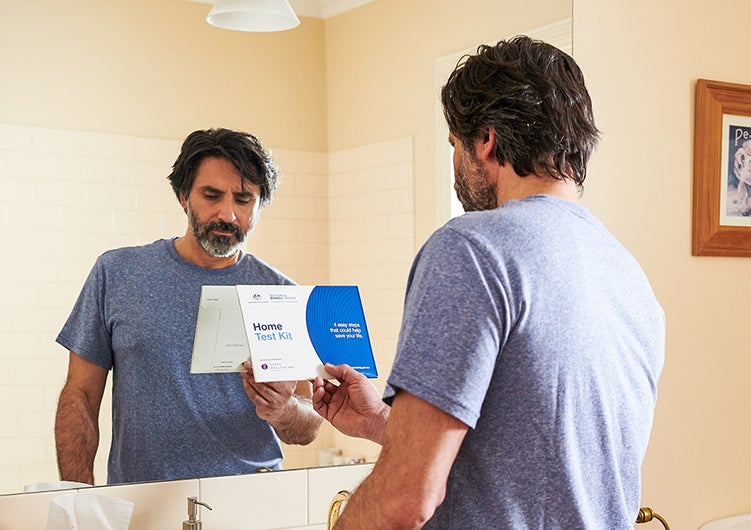Blog
Tasmania; one of the highest participation rates in the Bowel Cancer Screening
5 July 2021

Talking about poo might sometimes be taboo but Cancer Council Tasmania is continuing its mission to beat the stigma by celebrating the regions with the largest National Bowel Cancer Screening Program participation.
New data released by the Australian Institute of Health and Welfare showed that Tasmania is equal with South Australia in leading Bowel Cancer Screening participation with a rate of 48.9%.
When it comes to most improved areas in Tasmanian Brighton (4.3%), North East (3.8%) and Sorell/Dodgers Ferry (3.6%) all considerably increased their participation rate.
Penny Egan, CEO of Cancer Council Tasmania explained “Bowel cancer is Australia’s second biggest cancer killer claiming the lives of around 100 Australians each week. Thankfully however, we have a screening test that can detect these cancers early, often before symptoms arise.
“Tasmanian’s who have completed their bowel screening test deserve a pat on the back and we would encourage everyone to talk to their friends and family who are aged 50 to 74 and ask them if they’ve done their test – talking about poo isn’t taboo when it could save your life.
Penny said “Cancer Council’s goal is to see all regions across Tasmania have these high participation rates because we know that if we can increase participation across the country from 4 in 10 to 6 in 10, we could save 84,000 lives over the next 20 years nationally.
“If you have the screening test at home and you’re yet to complete it, please do the test now,” Penny added.
This announcement comes alongside new Australian Government funding for an ongoing campaign to get more people participating in bowel screening.
The National Bowel Cancer Screening Program delivers screening kits to the homes of eligible Tasmanians aged 50-74 every two years. The test is free, quick and hygienic and can be completed at home and returned in the post.
Tags
